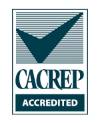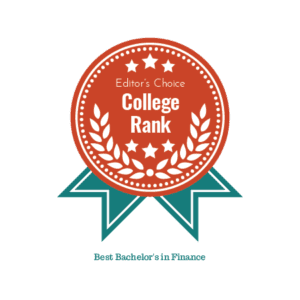Master's in Counseling
Overview
The program offers a 60-hour Master of Science in Counseling with three emphases:
Students complete 42 hours of core classes and 18 hours of specialization courses. NSU's Master of Science in Counseling program prepares students for a counseling career or for further advanced study. The program familiarizes students with the use of scientific thought and principles as applied to the practice of professional counseling.
This rigorous and unique program includes a 600 clock hour supervised internship experience. This program meets or exceeds the educational requirements for becoming either a Licensed Professional Counselor (LPC), a Licensed Alcohol and Drug Counselor (LADC), or a Certified School Counselor (K-12) in Oklahoma as well as most other states.
DEGREE AVAILABLE AT
- Tahlequah
- Broken Arrow
Program Chair

meyersa@nsuok.edu
Broken Arrow Education 263
(918) 449-6589
Mission Statement
The NSU counseling program is dedicated to positively influencing the regional and global impact of the counseling field through professional stewardship. This commitment will be achieved through the recruitment and retention of diverse professionals who demonstrate a willingness to engage in personal struggle, tolerate ambiguity, seek feedback, and grow alongside all counselors-in-training (CITs) and viewpoints.
The faculty seek to create a culture of learning where CITs feel supported to deconstruct preconceived ideas of the self and the world in which they live leading to a knowledgeable, skillful, and ethical counseling practice. These experiences will be facilitated through open-minded discourse with differentiated learning experiences.
Throughout the course of the program CITs will be challenged to apply their knowledge, skills, and dispositions to promote social justice and ethical conduct, thus enhancing self-actualization and sound mental health in self, clients, and systems they encounter.
The culmination of the program will result in counselors focused on self and client betterment who emerge as dedicated change agents, positively impacting the greater society in which they will serve.
We believe that a well prepared counselor is actively involved and committed to the process of intentional growth that promotes pro-social autonomy, lifelong learning, as well as ethical and professional behavior. Further, we strive to prepare student knowledge and commitment to the ethics of the profession and demonstration of application with multicultural and diverse populations. We strive to foster student growth within a dynamic and multi-modal learning setting in which diversity, critical thinking, self-in-context, scholarship, and creation and integration of knowledge are celebrated.
Our Masters-level graduates will possess expertise in the following areas:
- Human growth and development
- Helping relationships (individual and group)
- Appraisal or assessment techniques
- Counseling theories
- Counseling methods and techniques (individual and group)
- Research
- Lifestyle and career development
- Social, cultural, and family issues
- Professional orientation
Clinical Mental Health Emphasis
Clinical Mental Health Counseling prepares students for a counseling career or for further advanced study. The program familiarizes students with the use of scientific thought and principles as applied to the practice of professional counseling.
Graduates demonstrate competence in the areas of psychological assessment, and mental health counseling. This rigorous and unique program includes a 600 clock hour supervised internship experience. This program meets or exceeds the educational requirements for becoming a Licensed Professional Counselor (LPC) in Oklahoma as well as most other states.
Addiction Counseling Emphasis
Designed to broaden your understanding of evidence-based intervention and preventative measures, this program offers a breadth of coursework related to theory, practice, and the treatment of addictions. You also gain general counseling knowledge and skills.
This rigorous and unique program includes a 600 clock hour supervised internship experience. This program meets or exceeds the educational requirements for becoming a Licensed Alcohol Drug Counselor (LADC) in Oklahoma as well as most other states.
School Counseling Emphasis
The School Counseling Emphasis prepares students for Oklahoma K-12 School Counselor Certification. Graduates are prepared in the core areas of counseling theories, group and individual counseling techniques, human development, developmental guidance, career counseling, assessment and appraisal, and principles and administration of guidance services.
Students must also complete relevant field experiences. This rigorous and unique program includes a 600 clock hour supervised internship experience. This program also meets or exceeds the educational requirements for becoming a Licensed Professional Counselor (LPC) in Oklahoma as well as most other states.
Professional Licensure and Certification Disclosure
Please review each program emphasis tab for further information about licensing and/or certification.
Students seeking licensure in another state are advised to contact the appropriate licensing board in that state to determine specific requirements of guidelines for reciprocity. Northeastern State University cannot confirm whether a particular licensure program meets requirements for licensure outside of the State of Oklahoma. Though reciprocity per state is undetermined, individuals can access the American Counseling Association (ACA) website to get each state Board's contact information. The ACA has also provided a report with each state's licensure requirements. Click here to view a matrix of state-specific licensing information created by NSU. Note, licensing requirements are subject to change based on state Board's decisions, thus students are encouraged to review the ACA's previously-linked website.
For questions related to licensure, please contact the NSU Counseling program chair).
As licensing requirements are subject to change based on the individual state board's decision, students seeking licensure in another state are advised to contact the appropriate licensing board in that state to determine specific requirements of guidelines for reciprocity. Northeastern State University cannot confirm whether a particular licensure program meets requirements for licensure outside of the State of Oklahoma. Though specific reciprocity per state is undetermined, individuals can access addiction counselor state-specific board information online. Additionally, click here to view a matrix of state-specific information created by NSU.
For questions related to licensure, please contact the NSU Counseling program chair).
Programs at Northeastern State University that prepare students for certification as school counselors are designed to meet the certification standards set by the Oklahoma State Department of Education. Students seeking certification as a school counselor in another state are advised to contact the appropriate state board of education to determine specific requirements of guidelines for reciprocity.
Additionally, programs at Northeastern State University prepare future school counselors to become licensed professional counselors. Students seeking licensure as a licensed professional counselor in another state are advised to contact the appropriate state licensing board to determine the specific requirements of guidelines of reciprocity.
NSU cannot confirm whether a particular certification or licensure program meets requirements for certification or licensure outside of the State of Oklahoma.
-School Counseling: For a list of the state departments of education that oversee certified school counseling, see the U.S. Department of Education s state contacts webpage or you may click here to view NSU's state-specific matrix.
For questions related to School Counseling certification, contact the NSU Teacher Certification office at 918-444-3703.
-School Counselors pursuing licensed professional counselor status: For a list of the state licensing boards that oversee licensed professional counseling, see the American Counseling Association s website.
Additional Information and FAQ
Have more questions about the program or internships? Review the tabs for additional information.
When are applications due for graduate programs?
They are due December 15 for the following Fall admission cycle (e.g. apply December 15, 2021 to be admitted for the Fall 2022 cohort).
Do I really need to take the GRE?
No GRE required.
How do we get in contact with agencies to do an internship?
The semester before internship, a class that is required in the program is agency counseling. During this course, finding an internship, requirements, and where to look will be revealed.
When should I talk with my advisor? How often?
We recommend that you meet with your graduate faculty advisor at least once a semester.
How do I get involved in research?
Research collaboration between psychology and counseling faculty and their students is encouraged. If you have an interest in being involved in research, start with your advisor and he or she would be able to direct you to the appropriate faculty member given your research interests and their research needs.
Am I eligible for licensure?
Yes. All three tracks in the MS in Counseling program meet requirements for licensure as licensed professional counselor (LPC). Those students completing the addiction track are also eligible for licensure as drug and alcohol counselor (LADC).
How does the exit exam work?
All students must successfully complete the exit exam (CPCE) in order to earn their degree.
The counseling program requires students to complete internships in order to apply your knowledge and practice your skills in authentic settings.
Internship experiences will require students to secure an appropriate clinical site or school to complete the requirements necessary to meet national accreditation counseling standards (CACREP). The department maintains an approved list of sites Internship clinical training sites include a myriad of human service organizations and provide counseling services that are available in the communities encompassing the northeastern part of the state. These organizations provide individual, group, and family counseling as well as assistance, support, information, and advocacy for clients, families and other service providers.
accreditation
NSU's Master of Science in Counseling is accredited by the Council of Accreditation of Counseling and Related Educational Programs (CACREP) as of July 2015.
 CACREP is an independent agency recognized by the Council for Higher Education Accreditation
to accredit master's programs in Counselor Education and doctoral programs in Counselor
Education and Supervision.
CACREP is an independent agency recognized by the Council for Higher Education Accreditation
to accredit master's programs in Counselor Education and doctoral programs in Counselor
Education and Supervision.
Achieving CACREP accreditation demonstrates NSU's commitment to the enhancement of the program's reputation, the desire to attract highly qualified students seeking enrollment in CACREP programs, increasing faculty productivity in areas such as research, publication and service, and demonstrates a commitment to meeting the highest academic standards.


